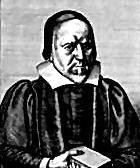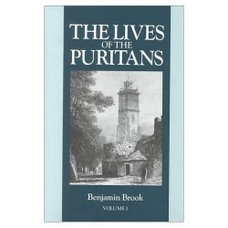Contemporaries 7
William Cavendish (1590–1628) was a nobleman, the second Earl of Devonshire and the second son of his namesake the first earl, William Cavendish (1551-1626) and his first wife, Anne Keighley. He was educated by Thomas Hobbes the philosopher, who resided at Chatsworth as his private tutor for many years and accompanied him in a tour through France and Italy before his coming of age. Hobbes says they were friends 20 years and eulogises his learning in the dedication of his translation of Thucydides. Cavendish was admitted to Gray's Inn, 1602 and probably graduated MA from Cambridge before being incorporated at Oxford, 1608. He was knighted, 1609 and married (allegedly against his will) the year before, Christian Bruce (1595–1675), daughter of Edward, Lord Bruce of Kinloss (later a notable royalist). They had three sons - William, the third earl; Charles, an army officer and Henry, who died in youth. His daughter Anne, a well-known patroness of literature, married Robert, Lord Rich, heir of the Earl of Warwick.
Cavendish was after his marriage a leader of court society and an intimate friend of James I. He was MP for Bishop's Castle (1610) and Derbyshire (1614, 1621, 1624-26) and Lord Lieutenant of Derbyshire, jointly with his father from 1619 then alone his death. In April 1622 he introduced to audiences with the king ambassadors from the emperor Ferdinand, Venice and the United Provinces. He was a leading member of the Virginia and Somers Island companies, frequently lobbying the crown on their behalf. His role in overseas ventures led, in 1623, to conflict with Robert Rich, Earl of Warwick. A duel was arranged, but prevented by the privy council. In 1625 he was present at Charles I's marriage. Styled Lord Cavendish from 1616, early in 1626 he inherited his father's title and seat in the Lords. There he resisted Buckingham's attempt to interpret a speech of Sir Dudley Digges as treasonous (May 13 1626). His lavish hospitality strained his ample resources in his last years and in 1628 a private act of Parliament enabled him to sell some of the entailed estates in discharge of his debts. His London house was in Bishopsgate (hence the later name Devonshire Square). He died there (from excessive indulgence in good living, it is said) June 1628. He was buried in July in All Saints', Derby.













No comments:
Post a Comment